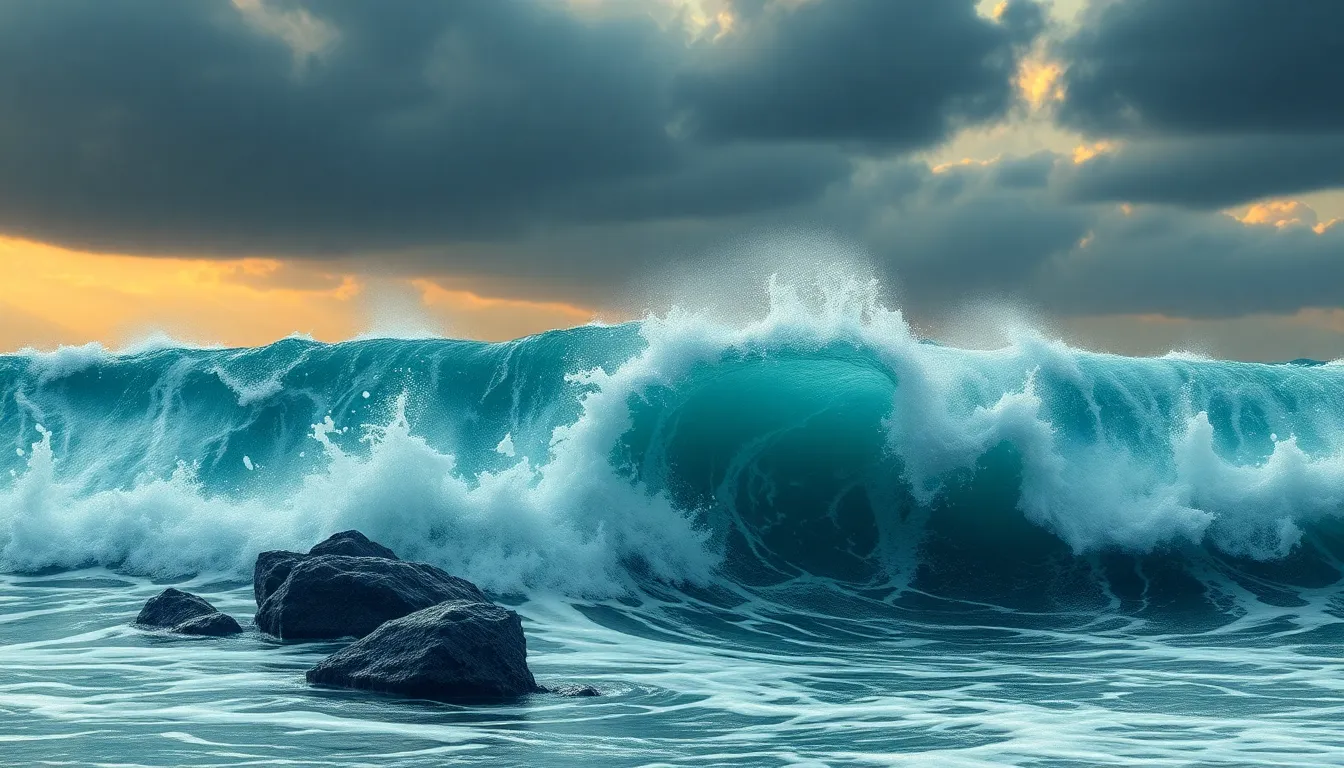The First Wave: How Water Plays a Role in Creation Myths
I. Introduction
Creation myths are foundational narratives that explain how the universe and life came into existence. Across different cultures, these myths often share common themes while also reflecting the unique beliefs and values of the societies that created them. One recurring symbol in these narratives is water, which plays a crucial role in the formation of the cosmos and the emergence of life. This article explores the significance of water in various creation myths, highlighting its dual nature as a source of life and a force of destruction.
II. The Symbolism of Water in Mythology
Water is one of the most potent symbols in mythology, embodying various meanings that resonate with human experiences and natural phenomena. Its multifaceted nature can be understood through several key aspects:
- Water as a source of life and fertility: In many cultures, water is directly associated with nourishment and growth, symbolizing the sustenance of life.
- The duality of water: While water is essential for life, it can also lead to destruction through floods, storms, and erosion, embodying the balance of creation and chaos.
- Archetypes of water: Different forms of water—such as rivers, oceans, and primordial seas—hold distinct symbolic meanings, often linked to the flow of time, the cycle of life, and the vastness of the universe.
III. Water in Ancient Near Eastern Creation Myths
In the ancient Near East, water was a central element in creation narratives, illustrating the chaotic beginnings of the world. One of the most notable texts is the Enuma Elish, the Babylonian creation epic:
- The Enuma Elish: This myth describes the emergence of the world from a primordial chaos represented by the waters of Tiamat.
- The role of Tiamat: Tiamat, a goddess associated with the saltwater ocean, symbolizes chaos. Her conflict with the god Marduk leads to the creation of the world from her body.
- Comparative analysis: Similar themes can be found in other Near Eastern myths, such as the Sumerian creation stories that also depict the world emerging from watery chaos.
IV. Water in Eastern Philosophies and Mythologies
Eastern philosophies often incorporate water into their creation narratives, emphasizing its significance in the cycle of life:
- Hindu creation stories: In Hinduism, the cosmic ocean known as Kshira Sagara plays a fundamental role in creation myths, symbolizing the source of existence.
- Chinese mythology: The story of Pangu illustrates how the giant emerged from chaos, using his axe to separate the heavens from the earth, with water being a critical element in this primordial state.
- Buddhist cosmology: In Buddhism, water symbolizes the fluid nature of existence and is often associated with purification and enlightenment.
V. Indigenous Perspectives on Water and Creation
Indigenous cultures around the world have rich traditions that highlight the spiritual connection between water and creation:
- Native American creation myths: Many Native American tribes incorporate water into their creation stories, viewing it as a sacred element that sustains life.
- Aboriginal Australian Dreamtime stories: Water features prominently in these narratives, often representing the ancestors and the land’s spiritual essence.
- The spiritual connection: Indigenous perspectives often emphasize the importance of maintaining a harmonious relationship with water, recognizing it as a source of life and spirituality.
VI. Water in Greco-Roman Mythology
In Greco-Roman mythology, water also plays an essential role in creation narratives:
- Theogony of Hesiod: Hesiod describes the primordial deities, including Oceanus and Tethys, as foundational figures of the cosmos, with water being a crucial element in their stories.
- The emergence of land: Many Greek myths feature the emergence of land from the primordial waters, symbolizing the transition from chaos to order.
- Influence of Roman mythology: Roman narratives often adopted Greek themes, emphasizing water’s role in the genesis of the world and its subsequent influence on life.
VII. Water’s Role in African Creation Myths
African cosmologies often reflect a profound reverence for water, viewing it as integral to creation:
- The significance of rivers and lakes: Many African cultures regard these bodies of water as sacred, often associated with fertility and life.
- Creation stories: Diverse African cultures, such as the Yoruba and Dogon, narrate how water contributed to the formation of the earth and the birth of humanity.
- Interplay of water and spirituality: Water is often seen as a conduit between the physical and spiritual realms, highlighting its sacredness in African traditions.
VIII. The Influence of Water on Modern Creation Narratives
Modern literature and art continue to draw inspiration from ancient myths, particularly in the portrayal of water:
- Contemporary stories: Many modern narratives reflect themes of creation and destruction associated with water, revisiting ancient symbols and archetypes.
- Water in literature and art: Artists and writers often utilize water as a metaphor for transformation, rebirth, and the cycle of life.
- Environmental narratives: In light of climate change, water has become a central theme in modern mythology, emphasizing the need for stewardship and respect for natural resources.
IX. The Scientific Perspective: Water in the Origins of Life
From a scientific standpoint, water is vital to understanding the origins of life on Earth:
- The role of water in abiogenesis: Water is believed to have been crucial in the chemical processes that led to the emergence of life, providing a medium for reactions.
- Scientific parallels with myths: The themes of chaos and creation found in myths resonate with scientific theories about the early conditions on Earth, where water facilitated the development of complex organic molecules.
In conclusion, water is a powerful and multifaceted symbol in creation myths across cultures. Whether viewed as a source of life, a force of chaos, or a sacred element, its presence in these narratives highlights the deep connection between humanity and the natural world. As we explore these ancient stories, we gain insight into the ways in which our ancestors understood the universe and their place within it, reminding us of the enduring significance of water in both myth and reality.



